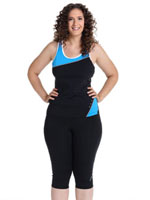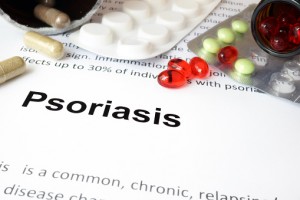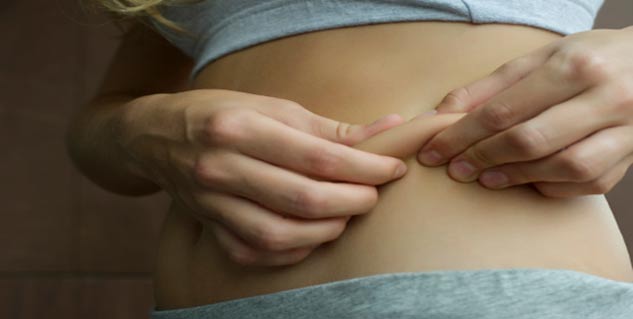37 Tips to Speed Up Weight Loss
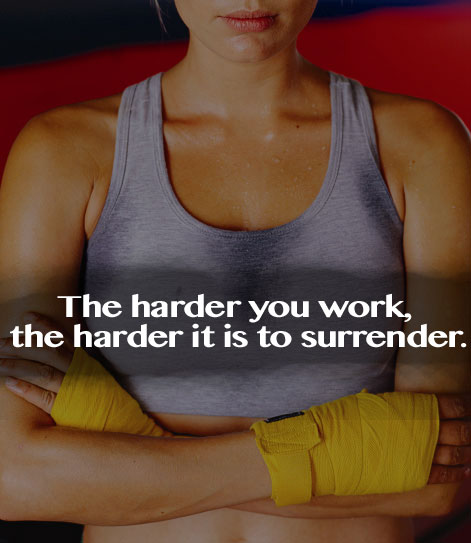 So you want to lose weight? Who doesn’t? Before, you think that this is some short-cut miracle piece of advice – it isn’t. What you will find below is a super useful list of tips that will help you lose weight. What you wont find is a promise that you’ll lose weight without effort, planning and a little determination. If weight loss was easy, we’d all be supermodels. If you want it, you gotta fight for it.
So you want to lose weight? Who doesn’t? Before, you think that this is some short-cut miracle piece of advice – it isn’t. What you will find below is a super useful list of tips that will help you lose weight. What you wont find is a promise that you’ll lose weight without effort, planning and a little determination. If weight loss was easy, we’d all be supermodels. If you want it, you gotta fight for it.
The only rules are to lose weight healthily and steadily. Consistency is key. Being super good for 10 days is not as useful to weight loss as merely being good for 100 days. If there were to be another rule, moderation would be it. So let’s start shall we?
HOW TO LOSE WEIGHT: EATING
1. RULE 1: DON’T STARVE YOURSELF
Why would you want to do this anyway? Who has this really worked for? You’ve tried it already? If it worked, you wouldn’t have to try it again, would you now? The truth is, you’ll only end up fatter than when you started. But just so you don’t feel too bad, it really isn’t your fault. The body is cleverly designed, and has what is often referred to as the “starvation protection mechanism” or “starvation mode”. This evolutionary mechanism kicks in when the body isn’t meeting its nutritional demands (around less that 1200 calories for women,
Slows the loss of body fat and triggers the loss of muscle mass. These two points alone produce an unfavorable effect in body composition, resulting in a body type known as skinny fat. Basically, you risk ending up with a higher body fat percentage, even though you weight less.
- Starving yourself is stressful for the body. Stress in turn increases cortisol and cortisol increases belly fat. After all, how should your body know that you are purposely withholding calories from it and that there are half-a-dozen restaurants around the corner?
- As far as your body is concerned, you’ve dropped your calorie intake so severely that there must be a famine; and since it doesn’t know when food supplies will next be available it slows down all unimportant processes to save energy, i.e. it slows metabolism. Saving energy means you burn less calories.
- Nutritional deficiencies due to failing to meet your body’s caloric and nutritional demands, which not only can increase your risk of medical problems, but also could make weight loss more difficult.
- The end result is that you hit a weight loss plateau and once you give up on your very low calorie diet, you regain all the weight. Why? Once you start eating normally you regain the weight (and then some) because your body’s metabolic rate hasn’t returned to normal (it’s still sluggish). This means that post-diet you need fewer calories than before.
- In order to lose weight – fat weight – it is vital to do as much as possible to protect your metabolic rate and if possible to increase it. This means you must “trick” your body’s starvation protection mechanism, through careful manipulation of your daily calorie intake, using cardiovascular exercise to increase the calorie deficit and by implementing resistance training to stave of loss of muscle.
Still, if this is going in one ear and out the next, if you must, there are unsuccessful and successful ways to go on a 1,000 calorie a day diet (don’t go below 1,000 calories per day), both in terms of weight loss success and health. See next.
2. QUALITY NOT QUANTITY. NUTRIENTS vs CALORIES
There are many means of consuming, say, 1,000 calories. Other than calories, your body also needs nutrients. And while of course calories are important it is often the lack of nutrients on a very low calorie diet that catches people out. To successfully remain on 1,000 calories a day requires that you feed your body the nutrients it needs. If you do choose to go on a very low calorie diet, you need to carefully consider your food choices – more than normally. You’ve got to make every calorie count. For example, there is a gargantuan difference between 1000 calories of fast food and 1000 calories of nutrient-rich, fiber-rich foods. If you’re going to severely restrict calories, you’ve got to have a plan – and follow it. To lose weight fast (and healthily) it is important that the foods you eat are:
- High in Fiber: Increases the feeling of fullness. Research indicates that consuming an extra 14 grams of fiber a day is associated with a 10% decrease in calorie intake and a loss of 1lb of weight per week body weight.
- Rich in Protein: Research shows that calories-for-calorie, protein makes a person feel more full than either carbohydrates or fats. Eating sufficient lean protein will help control hunger. In other words, you feel fuller after eating less and calorie intake is reduced. Furthermore, eating protein is important a no-protein diet is particularly risky. For fast weight loss, focus on egg whites, skinless poultry breasts, fish, shellfish, nonfat dairy foods, 95% lean meat and soy products.
- LOW ENERGY Density: The energy content of food, gram for gram, has a big impact on weight loss. Energy content refers to the amount of calories in a gram of food. Generally, the more water a food contains the less energy (i.e. calories) it has. Think of celery that is high in water and low in calories (10 calories). Compare this with salted peanuts (300 calories), which are mostly fat.
- HIGH NUTRIENT Density: A huge and vitally important reason that people fail on their weight loss diets is the nutrient content of their diet. Nutrient density is too often underestimated. While it might not be the most glamorous reason, it is one of the most significant factors to determine whether you will lose weight fast. You might not think about the nutrient content of what you’re eating, but your body does. If you drop your calorie intake without maintaining your nutrient intake, your body takes steps to ensure its nutritional needs are met and your weight loss efforts are almost certain to fail. On weight loss diets, nutrient content can be make-or-break. Fruit and vegetables are high in nutrients, as well as fiber, and should form a central part of your diet to lose weight fast.
- SUPPLEMENT: You should take a multivitamin and mineral supplement while following a lower-calorie eating plan geared for fast weight loss.
It isn’t a case of food quantity, but food quality to ensure you meet your body’s nutrient needs. You can drop your calorie intake significantly and feed your body all the vitamins and minerals it requires by going for nutrient dense foods. Fast weight loss need not mean sacrificing your health and good looks. Depriving your body of calories so that you can burn your fat reserves does not mean that you also have to deprive your body of vitamins and minerals. Diets with the aim of losing weight fast and that only involve eating one type of food (i.e. mono diets) can cause some undesirable effects because they lack the essential nutrients your body needs to survive. Here’s more about fast weight loss. Quality food, instead of quantity to continue satisfying your body’s requirements.
3. REDUCE CALORIES SLOWLY
Yes, you’re eager, but if you cut back your calories to the extreme, where do you go when you hit the inevitable weight loss plateau? Start slowly and every time weight loss slows you can cut back your calorie intake a little more, or even better increase you calorie burn by exercising more.
4. EQUALLY – DON’T EAT TOO MUCH
Distinguish between hunger, greed and boredom. Only eat when you’re hungry.
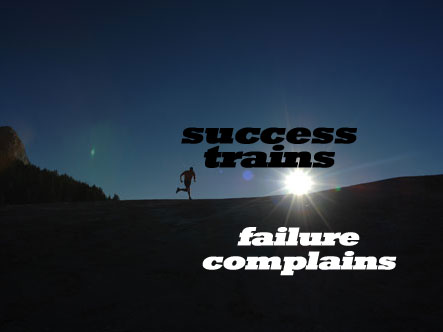
HOW TO LOSE WEIGHT: GENERAL TIPS & TRICKS
5. FEEDBACK IS THE BREAKFAST OF CHAMPIONS
Continuously correct and adjust what you are doing to lose weight. Why? Because your body is constantly adapting and adjusting to avoid burning as little calories as possible (a survival strategy) and prevent weight loss. Your goal is to not give your body sufficient time to catch on to what you are doing. That way you’ll keep calorie burn at maximum and continue to lose weight. In short, avoid your body from catching on to your weight loss efforts (see interval training), otherwise weight loss will slow or stop. You must periodically change your workout plan and your calorie intake (see calorie rotation).
6. MINIMIZE MUSCLE LOSS
When you lose weight – no matter how good you are – it will never be 100% fat, some of it will be muscle. But, what you can do is minimize muscle loss. Don’t forget that when you lose muscle your metabolism slows down. Therefore, you must take steps to reduce muscle loss as much as possible. This means weight training! In fact on a good weight loss program you can increase muscle mass. So, you’ve hit two birds with one stone. You lose weight, but simultaneously increase your muscle mass, adding shape and definition to your body. This will give you the appearance of great health, rather than the ill looking appearance of those who have been severely restricting their calorie intake resulting in fatigue, irritability, insomnia, muscle weakness and vitamin deficiencies. Basically, when you come out of a good weight loss program you should be feeling the best of you life in a long time. Your stamina will improve, you’ll see an improvement in your ability to exercise, you will feel stronger, you’ve lost weight and your breathing and quality of sleep is better, your complexion is improved, your skin glows, and the list goes on… This is the only way to achieve a healthy, permanent weight loss and to maintain a great physique. It requires a PERMANENT change of lifestyle – not just a 2-week diet.
HOW TO LOSE WEIGHT: EAT THESE FOODS
7. DRINK WATER & FORGET ABOUT EVERYTHING ELSE
If you want to lose weight, apart from tea and coffee perhaps, cut out all other beverages. Drinks are incredibly high in sugar, full of calories but don’t fill you up. In other words, you’re loading up on calories and don’t even have anything to show for it. This includes fruit juices, which, while high in nutrients are also high in calories. You can juice your vegetables, but you must eat (not drink) your fruit. With regards to diet soda, yes they are low in calories, but can you name any of the ingredients on the can? While diet sodas might not be bad for your waist, who knows how good they are for your health?
8. OPT FOR NON-FAT FOOD CHOICES
Swap your milk, cheese, yogurt and so on for non-fat or low fat alternatives. Fat is high in calories. Every 1 gram of fat you eat contains 9 calories, which means it adds up quickly. A couple of weeks after changing to low-fat, you wont even remember the difference in taste, but you will appreciate the difference to your waist and your weight loss efforts.
9. SWAP YOUR REGULAR CHEESE
Swap your regular cheeses made from cow’s milk with goats cheese. The calories in cheese are highly variable. Goats cheese contains 40% fewer calories than regular cheese.
10. TWEAK YOUR FAVORITE FOODS
There is a healthier, lower-calorie alternative to you favorite dish. Yes, it will taste a little different, but it means you don’t have to give it up entirely. You’ll find you might be able to cut your calories by half if you try and help you lose weight with greater ease.
11. IF YOU CAN’T UNDERSTAND – OR PRONOUNCE – WHAT’S ON THE TIN, DON’T EAT IT
Go for natural whole foods. Start to cut down on fast-foods, ready-made foods and foods with ingredients you’d never find in nature. Basically, go back to basics. You’ll probably not only cut down on calories, but on spending. Instead of a chocolate bar, make your own trail mix – throw together a few raisins and nuts.
12. EAT MORE PROTEIN
Protein is highly filling, but relatively low in calories. In fact, this is what the Atkins Diet is banking on. Eating plenty of lean protein means that you can cut back on calories and lose weight without feeling hungry.
13. EGG-WHITE OMELET FOR BREAKFAST
Egg-whites are high in protein, but low on fat and low on calories. You’ll feel fuller for longer than a breakfast with a similar number of calories.
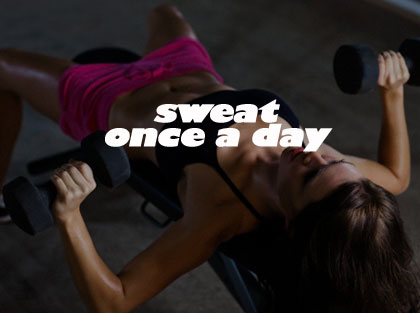
14. DON’T FILL UP.
During meals don’t aim to feel “full”, eat until you don’t feel hungry, i.e. satiated. The two are not the same. Your stomach is relatively small – merely the size of a fist – meaning you don’t need to eat much to fill it comfortably. And your body can only deal with a limited amount of food at any one time. Furthermore, if you regularly eat until you’re full, the more you stretch your stomach, and the more food you have to eat to get that feeling of fullness. If you feel gorged, bloated or lethargic, you are in all probability either eating at the wrong time or consuming too much too much food. Aim for no more than 600 calories per meal to maximize fat-burning.
15. EAT ONLY FROM A PLATE
Eat only from a plate, and whilst seated at a table. Don’t eat standing or on the go.
16. NO TO ALCOHOL
Yes you want to have a good time, but do you need alcohol to do so? If the answer is yes, perhaps you should cut it out for a while. In any case, one Mojito equals 160 calories – and that’s a low calorie cocktail! The numbers tally up quickly and before you know it, you’ve drank a whole weeks worth of gym time in one weekend. Plus alcohol increases cortisol levels and cortisol build belly fat and may slow your metabolism by 70%. Worth it? I think not? If you’re serious about losing weight, cut out alcohol completely.
17. GO MEDITERRANEAN
Eat a foods rich in monounsaturated fatty acids (MUFA), such as olive oil, nuts and avocados. Not only have they been shown to aid weight loss, but they also trim belly fat.
18. DON’T POUR SPRAY
Instead of pouring oil into the pan, use spray oil. Each squirt contains 1 calorie, while one table spoon of oil contains 120 calories. That adds up over the course of a year. Making that small change for just once a day works out at a saving of 43,435 calories a year or a weight loss of 12lbs (approximately 6kg).
19. SUPPLEMENT WITH FISH OILS
This awesome food supplement can help with weight loss and has a bevy other other beneficial health effects. Research suggests anti-cancer effects (esp. breast, colon and prostate cancer), a reduced risk of depression and suicide and a neuro-protective effect against Alzheimer’s and Parkinson’s. In women fish oil may promote prevent pre-term labor and delivery fetal and infant brain health, reduce the infant’s sensitization to common food allergens effects particularly for women and confer long-term benefits on specific aspects of neurodevelopment in infant. In addition, numerous studies show that fish oils can significant reduce menstrual cramps.
20. SUPPLEMENT WITH VITAMIN D
There is evidence that Vitamin D can help you lose weight. A 2010 study published in the American Journal of Clinical Nutrition, suggests that increase vitamin D levels (and intake of dairy-derived calcium) may increase weight loss while dieting. While a 2007 study in the Archives of Internal Medicine found that Vitamin D may prevent the weight gain that commonly occurs in middle-aged women. Indeed, supplementing with Vitamin D in winter, may help stave off the winter weight gain to which most of us fall prey
21. SUPPLEMENT WITH VITAMIN C
Insufficient amounts of the vitamin may hinder weight loss. A study at Arizona State University found that consuming sufficient amounts of vitamin C burn 30% more fat during moderate exercise compared to those who consume too little amounts of Vitamin C. Furthermore, insufficient vitamin C levels are associate with increased body fat and greater waist measurements.
22. TRY CLA
It’s the holidays? Supplement with CLA (Conjugated Linoleic Acid). Research shows that CLA can help prevent weight gain, making it ideal for periods when overindulging is inevitable.
23. CAFFEINE
Drink coffee or even better – anti-oxidant rich green tea. Research shows that drinking 5 cups of green tea per day increases metabolism by 20%, helping you burn fat and lose weight, while 2 cups of coffee will also boost metabolism. Plus, there is evidence that daily coffee intake protects against Alzheimer’s disease.
24. DON’T TORTURE YOURSELF
Don’t bring high calorie snacks and treats into the house, you’ll always be having to fight temptation. Firstly, constantly fighting is tiring. Secondly, you will eventually give in. Thirdly, you’ll feel guilty afterwards and may or may not end up binging or giving up on your weight loss efforts all together. So make losing weight easy on yourself. Indulge in your favorite treats away from home, such as during a meal out with friends, your local coffee shop or ice cream parlor.
25. ADD MUSTARD
Scientists at Oxford Brookes University believe that by simply adding a tablespoon of mustard to your meal you can reduce belly fat by a whopping 20%.
26. SPREAD HORSERADISH ON YOUR SANDWICH
This topping has been shown by researchers from the University of Copenhagen to help burn fat and reduce hunger pangs.
27. ADD A TOUCH OF LEMON ZEST TO YOUR MEAL
According to a study published in The Journal of Nutrition lemon zest may prevent cravings, because, once in the stomach the fibrous pectin found in the lemon peel transforms into a sticky gel that slows that absorption of sugar. Decreased cravings means easier weight loss.
28. SPICE-UP YOUR MEALS WITH TURMERIC
The active ingredient in turmeric is curcumin, which, according to The Journal of Nutrition, increases fat burning. Researchers at Columbia University believe that consuming approximately 1 teaspoon of turmeric a day may help you achieve significant weight loss, even in the absence of dieting.
29. TURN UP THE HEAT WITH PEPPER
Research suggests that, consuming a small amount of hot pepper half and hour before eating decreases hunger and calorie consumption by about 10%, aiding weight loss.
30. TRY MUSHROOMS
One study shows that people who ate a mushroom-based starter felt just as satisfied as when eating the same dishes – but made with beef. However, the mushroom starter contained substantially fewer calories and fat.
31. EGGS FOR BREAKFAST
Research shows that people who eat eggs for breakfast feel fuller for longer. A study published in the International Journal of Obesity showed that dieters who eat eggs for breakfast lose twice as much weight as those who eat a calorie equivalent breakfast consisting of bagels. What works for breakfast works for other meals too, as eggs are protein rich and incredibly satiating.
32. OATMEAL BEFORE EXERCISE TO BOOST FAT BURNING
Research published in the Journal of Nutrition suggests that consuming a meal consisting of “slow-release” carbohydrates (e.g. oatmeal, muesli or bran cereal), prior to exercising may help you burn more fat. The study showed that calorie burning during exercise was nearly twice that of exercising after eating a meal made up of fast-release carbohydrates (e.g. cornflakes, white bread, jam). As the name implies, “slow-release” carbohydrates are more slowly digested, such that blood sugar levels don’t spike as high, which means that insulin levels are not as high either. Since insulin is a fat storage hormone, lower levels of insulin may help you lose weight. Read more about the type of carbohydrates here.
33. CHEW EVERY MOUTHFUL THOROUGHLY
A study published in the American Journal of Clinical Nutrition asked participants to chew one serving of almonds 10, 25 or 40 times. Participants who felt fuller longer, were those who chewed the most.
34. SWAP REFINED GRAINS FOR WHOLE GRAINS
A study in the Journal of Nutrition found that this simple switch might help reduce total body fat and help you lose belly fat. Researchers found that adults who ate about 3 servings of whole grains a day had less body fat and less belly fat fat than participants who ate less than a 1/4 of a serving. Whole grains act to aid weight loss by promoting satiety. The fiber in whole grains helps you feel fuller though eating fewer calories. Whole grains are thought to slow digestion or absorption, resulting in lower insulin and glucose levels, which favor the fat burning instead of fat storage. Whole grain fiber is particularly effective at helping you feel full and may help you feel fuller than eating fiber found in other foods stuffs such as fruit and vegetables. Aim for at least three servings of whole grains daily (one serving equals 1 cup of whole-grain cereal or a slice of whole-wheat bread)
35. DON’T BANISH SWEETS
Switch high-calorie sweet treats for more nutritious, lower-calorie versions. According to a study published in Proceedings of the National Academy of Sciences, prohibiting sugary foods entirely could lead to overeating. It is thought that banning sweet foods stimulates the release of a polypeptide hormone and neurotransmitter called corticotropin-releasing factor (CRF), which is linked with higher stress levels and may decrease your motivation to eat healthily, increasing the likelihood of binging on junk foods.
36. START WITH SOUP
According to a study published in the journal Appetite, people who start their meal with vegetable soup consume 20% fewer calories over the course of their entire meal.
37. ANY EXERCISE IS BETTER THAN NO EXERCISE!
-
7 Ways To Get Fit Without Depriving Yourself
When embarking on a weig
-
Weight Loss Is A Lifestyle. Create Your Own Weight Loss Program
Weight loss requires major shifts in your living patterns. There are
-
Not All Calories Are Created Equal
For decades, weve been taught that weight loss comes down to the simpl
-
Quick Weight Loss Or Quackery
Cellulite - Reduce The Appearance --------------------------------- S
-
This Will Speed Up Your Metabolism…A Lot!
True or false: you can burn calories while you sleep. T
-
Thinking About Trying Weight Loss Patches
Weight loss patches are generally made from such ingredients as algae
- DON'T MISS
- What Is The Best Herbal Weight Loss Supplements?
- Dieting Strength
- You Do Need to Exercise for Weight Loss
- 10 Things to Stop Doing if You Want to Lose Weight
- Complete Nutrition for Dieters: Hemp
- The Best 8 Aerobic Exercises
- Fat Burning Diet - Effective Ways to Lose Weight
- Tasty Tips for Low Carb Diets
- 5 Ways To Eat What You Want On Thanksgiving
- Why Women Find It More Demanding To Lose Fat Than Men Do


